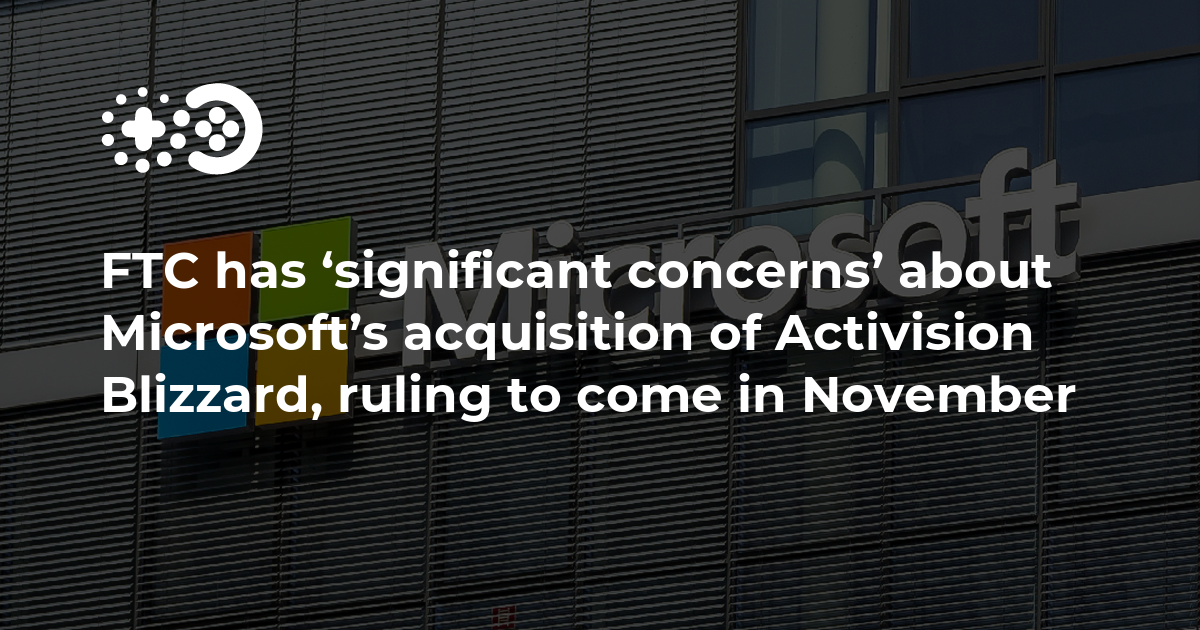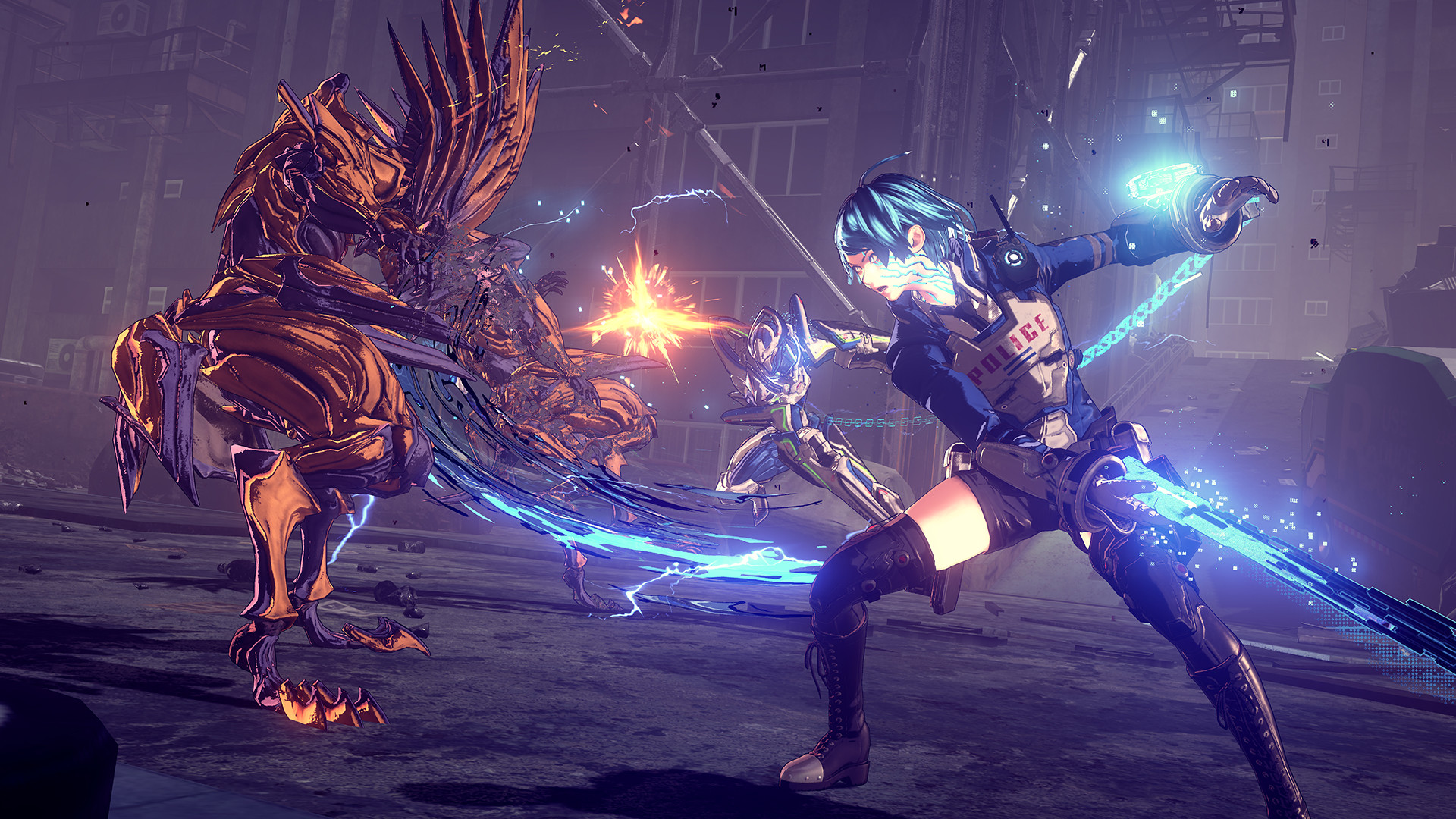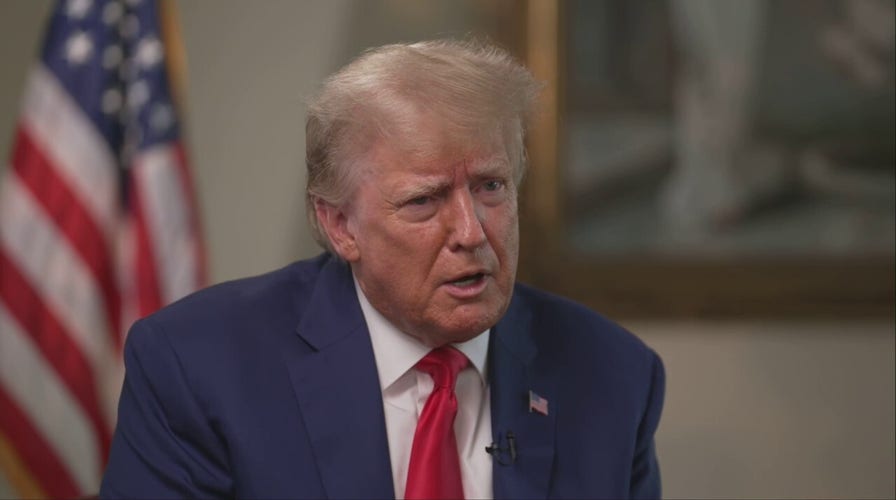FTC Appeals Activision Blizzard Acquisition Ruling: What's Next?

Table of Contents
The FTC's Case Against the Activision Blizzard Acquisition
The Federal Trade Commission (FTC) filed a lawsuit to block Microsoft's acquisition of Activision Blizzard, primarily citing antitrust concerns. The FTC argued that the merger would substantially lessen competition in the video game market, harming consumers. Their case rested on several key pillars:
-
Domination of the console gaming market: The FTC argued that the combined market share of Microsoft and Activision Blizzard would create an insurmountable dominance, stifling competition from other major players. This is particularly relevant considering the immense popularity of Activision Blizzard's franchises.
-
Potential for price increases and reduced innovation: The FTC expressed concerns that the lack of competition would lead to higher prices for games and potentially reduced innovation in game development, as Microsoft could prioritize its own titles over those from competitors.
-
Concerns regarding Call of Duty exclusivity: A major point of contention was the potential for Microsoft to make Call of Duty, one of the most popular and lucrative game franchises, exclusive to its Xbox ecosystem. This could significantly harm competitors like PlayStation and Nintendo, impacting millions of gamers. This relates directly to keyword phrases like Call of Duty exclusivity and the Activision Blizzard merger blocked.
-
The FTC's broader strategy regarding mergers and acquisitions in the tech industry: This case reflects a larger trend of increased regulatory scrutiny of mega-mergers in the tech sector, highlighting the FTC's commitment to preventing monopolies and protecting consumer interests. The FTC antitrust lawsuit is part of a larger conversation about market dominance in the tech industry.
Microsoft's Response and Legal Strategies
Microsoft has vigorously defended its acquisition, arguing that the FTC's concerns are unfounded. Their legal strategy focuses on:
-
Microsoft's commitment to keeping Call of Duty multiplatform: Microsoft has repeatedly pledged to keep Call of Duty available on PlayStation and other platforms, even offering long-term contractual agreements to solidify this commitment. This directly counters the Call of Duty exclusivity concerns raised by the FTC. This is a key element in the Microsoft Activision Blizzard acquisition narrative.
-
Arguments against the FTC's assessment of market dominance: Microsoft argues that the gaming market is dynamic and competitive, citing the success of other major players and the rise of cloud gaming. They dispute the FTC's assessment of market share and the potential for anti-competitive behavior.
-
Microsoft's investment in cloud gaming and its impact on competition: Microsoft emphasizes its substantial investment in cloud gaming, suggesting that this technology will foster greater competition and accessibility in the market, ultimately benefiting consumers.
-
Legal precedent and case studies used by Microsoft in their defense: Microsoft's legal team has utilized various precedents and case studies to support their arguments, aiming to demonstrate that the acquisition aligns with existing legal frameworks and does not pose an undue threat to competition. The Microsoft legal strategy involves presenting a strong counter-narrative to the FTC's claims. This relates to the Microsoft Activision Blizzard acquisition defense.
Potential Outcomes and Implications
The appeal's outcome holds significant implications for the future of the gaming industry. Several scenarios are possible:
-
Scenario 1: The FTC wins the appeal, blocking the acquisition. This outcome would be a significant blow to Microsoft and Activision Blizzard, impacting Activision Blizzard stock prices and potentially altering Microsoft's long-term gaming strategy. It would also set a strong precedent for future mergers and acquisitions in the gaming sector. The Activision Blizzard acquisition outcome would significantly impact the gaming market's structure.
-
Scenario 2: Microsoft wins the appeal, and the acquisition proceeds. This would allow Microsoft to integrate Activision Blizzard's portfolio, potentially leading to significant changes in game development, distribution, and pricing. The impact on gaming industry could be substantial, with long-term consequences for competitors and gamers alike.
-
Scenario 3: A negotiated settlement is reached. A compromise might involve concessions from Microsoft, such as stricter commitments to maintain Call of Duty's multi-platform availability or other regulatory stipulations. This outcome could offer a middle ground, but the specifics would be crucial in determining its overall impact.
This case will establish crucial precedent for the future of gaming mergers, influencing how future acquisitions in the gaming industry are reviewed and regulated. Analyzing the Activision Blizzard acquisition outcome is critical for understanding future industry trends.
The Role of Regulatory Bodies and Public Opinion
The outcome of the FTC's appeal is not solely determined by legal arguments. Regulatory bodies worldwide, along with public opinion, play a significant role:
-
Influence of public pressure and gamer sentiment: Public opinion, particularly among gamers, has played a role in shaping the narrative surrounding the acquisition. Online discussions and advocacy efforts have influenced the public discourse. The public opinion Activision Blizzard matters to the decision-making process.
-
International regulatory scrutiny of the merger: Regulatory bodies in other countries have also reviewed the merger, adding another layer of complexity to the legal battle and highlighting the international implications of this case.
-
Potential for future regulatory changes impacting the gaming industry: The outcome of this case could spur further regulatory changes aimed at addressing concerns about market dominance and competition in the gaming industry. The FTC regulation of the gaming industry may change significantly. Similarly, gaming industry regulation might evolve after this case.
-
The ongoing debate about the regulation of large tech companies: This case contributes to the broader ongoing debate about the appropriate level of regulation for large technology companies and their impact on various markets.
Conclusion
The FTC's appeal of the Activision Blizzard acquisition represents a pivotal moment for the gaming industry. The arguments presented by both sides—the FTC's antitrust concerns and Microsoft's commitment to multi-platform availability—highlight the complex interplay between competition, innovation, and regulatory oversight. The various potential outcomes, each with its own significant implications, underscore the magnitude of this legal battle and its lasting impact on the FTC Activision Blizzard acquisition debate. The case will inevitably shape the future landscape of gaming mergers and acquisitions for years to come.
Call to Action: Stay informed about the ongoing FTC Activision Blizzard acquisition case. Follow further developments and understand how this landmark legal battle will shape the future of gaming. Continue to research the FTC Activision Blizzard acquisition and its consequences to stay ahead of the curve in this rapidly evolving industry.

Featured Posts
-
 The Next Pope How Franciss Papacy Will Shape The Conclave
Apr 22, 2025
The Next Pope How Franciss Papacy Will Shape The Conclave
Apr 22, 2025 -
 Blue Origin Scraps Rocket Launch Due To Subsystem Issue
Apr 22, 2025
Blue Origin Scraps Rocket Launch Due To Subsystem Issue
Apr 22, 2025 -
 Nintendos Action Ryujinx Switch Emulator Development Ceases
Apr 22, 2025
Nintendos Action Ryujinx Switch Emulator Development Ceases
Apr 22, 2025 -
 Pan Nordic Defense A Deep Dive Into Swedish Armor And Finnish Personnel
Apr 22, 2025
Pan Nordic Defense A Deep Dive Into Swedish Armor And Finnish Personnel
Apr 22, 2025 -
 Deadline Looms Kyiv Must Respond To Trumps Ukraine Peace Initiative
Apr 22, 2025
Deadline Looms Kyiv Must Respond To Trumps Ukraine Peace Initiative
Apr 22, 2025
